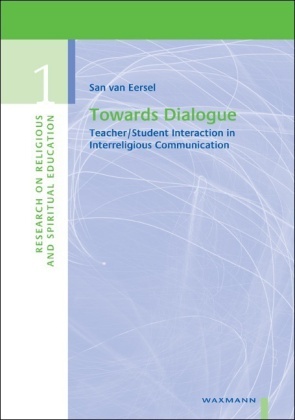Read more
This study deals with the use of dialogical communication in religious education by teachers and students from different religious backgrounds at Catholic primary schools in the Netherlands. Until recently interreligious communication did not occupy a very prominent place in religious education. This changed as a result of the growing number of immigrant students, an increase in religiously mixed classes and new awareness of and sensitivity to interreligious relations. In recent decades there has been a growing body of literature on the challenge that religious diversity poses for religious education. Increasing religious diversity also raises new questions that have not yet been properly analysed and for which no satisfactory answers have been found. One such question concerns the content and method of dialogical communication in the context of interreligious and intercultural learning: what communicative and cultural practices acknowledge and appreciate otherness and difference, yet at the same time cultivate awareness of the interdependence of self and other? Questions like these are central to educating a generation with a truly social outlook and a truly social will (education for citizenship). To this end the author investigated the implications of the dialogical principle in (inter)religious education.
About the author
San van Eersel (1960) was born in Helmond (the Netherlands) and studied theology in Nijmegen. He worked as a religious education teacher in primary and secondary schools, and has taught religious education in teacher training colleges in Utrecht and Helmond. At present he works as management consultant in the field of (catholic) identity and educational leadership at the Bureau for Catholic Education (BKO) in Woerden and as researcher at the Institute for Catholic Education (IKO), which is affiliated to the Radboud University Nijmegen.
His current research interests are the use of dialogue (both communicatively and substantively) in educational practices (both in class and outside the class) in (catholic) primary schools in the context of cultural and religious diversity. He is married to Fréderieke van Eersel-van der Linden and has two sons, Marijn and Ezra.

